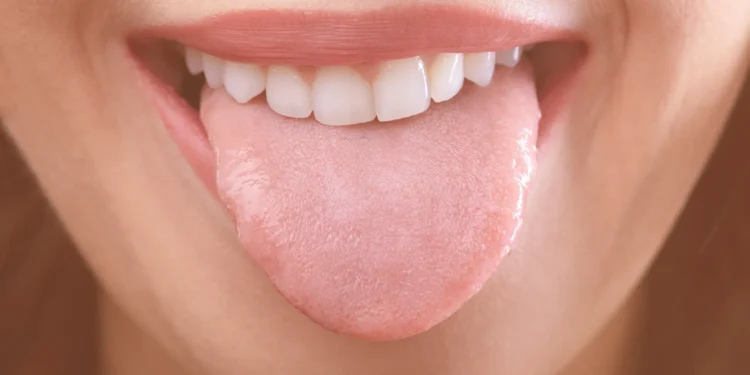Have you ever caught yourself unconsciously rubbing your tongue against your teeth? This habit can be quite bothersome and may even lead to dental issues. If you’re experiencing this, it could result from improper jaw alignment or the development of TMJ disorder. This situation can result in various symptoms such as discomfort or pain in your face or jaw, tightness or locking of your jaw joint, earaches, or headaches that ease when you press certain points near your ear.
One common manifestation of this disorder is tongue-rubbing, possibly due to a back molar pushing into a front lower tooth. In this article, we’ll provide effective ways to eliminate the habit of rubbing your tongue on your teeth. So, let’s delve into some helpful tips to maintain dental hygiene and oral health! Our primary focus today will be on discussing the techniques for how to stop rubbing tongue on teeth.
Different Ways How To Stop Rubbing Tongue On Teeth
One way to stop rubbing your tongue against your teeth is to be aware of when you’re doing it and consciously try to stop. Another way is to train yourself to rest your tongue in a more neutral position, such as the roof of your mouth or behind your front teeth. Let’s start to discuss some more techniques on how to stop rubbing tongue on teeth.
1. Do Mouth Exercise
If you’re trying to get rid of your habit of tongue rubbing, strengthening the muscles in your mouth may be a viable solution. One effective method to achieve this is using a straw to create a strong suction between your teeth and an object.
To put this into practice, you can begin by placing a small object, such as a pencil or a pen, between your teeth. Then, grab a straw and place it in your mouth, creating a seal around the object with your lips.
Once you’ve created a tight seal, try to suck air through the straw and feel the resistance against your teeth and the object. This action can help build up the muscles in your mouth, particularly the tongue and cheek muscles, which will eventually make it easier to stop the habit of tongue rubbing.
2. Think About to Change Toothbrush
While you may assume that all toothbrushes are the same, the truth is that the type of toothbrush you use can impact your oral hygiene habits. Specifically, your toothbrush can influence how frequently you rub your tongue against your teeth. Therefore, opting for a toothbrush with a small head and soft bristles is recommended.
A toothbrush with a smaller head makes reaching difficult areas in your mouth easier, such as the back molars, which are more prone to plaque buildup. On the other hand, soft bristles are gentle on your gums, reducing the risk of irritation and bleeding. Using a toothbrush with these features may make you more inclined to brush for the recommended two minutes and maintain better oral hygiene habits overall.
3. Chewing Gum
Rubbing your tongue against your teeth can cause damage to the enamel and create abrasions on the surface of your teeth. Instead, chewing gum is a more effective way to stimulate saliva production and protect your mouth from bacteria. Increasing saliva production helps eliminate bad breath by neutralizing bacteria and washing away food particles. This creates a positive feedback loop as the more saliva you produce, the more effective it reduces bad breath over time.
Chewing gum also helps to keep your teeth and gums healthy by removing bacteria and strengthening your jaw muscles. However, it is important to choose sugar-free gum to avoid damaging your teeth with excess sugar.
4. Control Your Stress
One common bad habit is rubbing the tongue against the teeth, which can be caused by stress. Stress can lead to various issues, including mental health, digestive, and physical pain. One can practice meditation, yoga, or other forms of exercise to manage stress effectively. However, a potential drawback of these stress-reducing methods is increased saliva production, which can lead to teeth sensitivity over time.
Final Words: How To Stop Rubbing Tongue On Teeth
If you keep rubbing your tongue against your teeth, you may require to see an orthodontist who can identify the cause and suggest treatment options. If that doesn’t work, other solutions exist, like wearing a retainer at night or undergoing behavioral therapy to address the issue. This article provides tips on how to stop rubbing tongue on teeth and invites readers to share their thoughts in the comments section.




